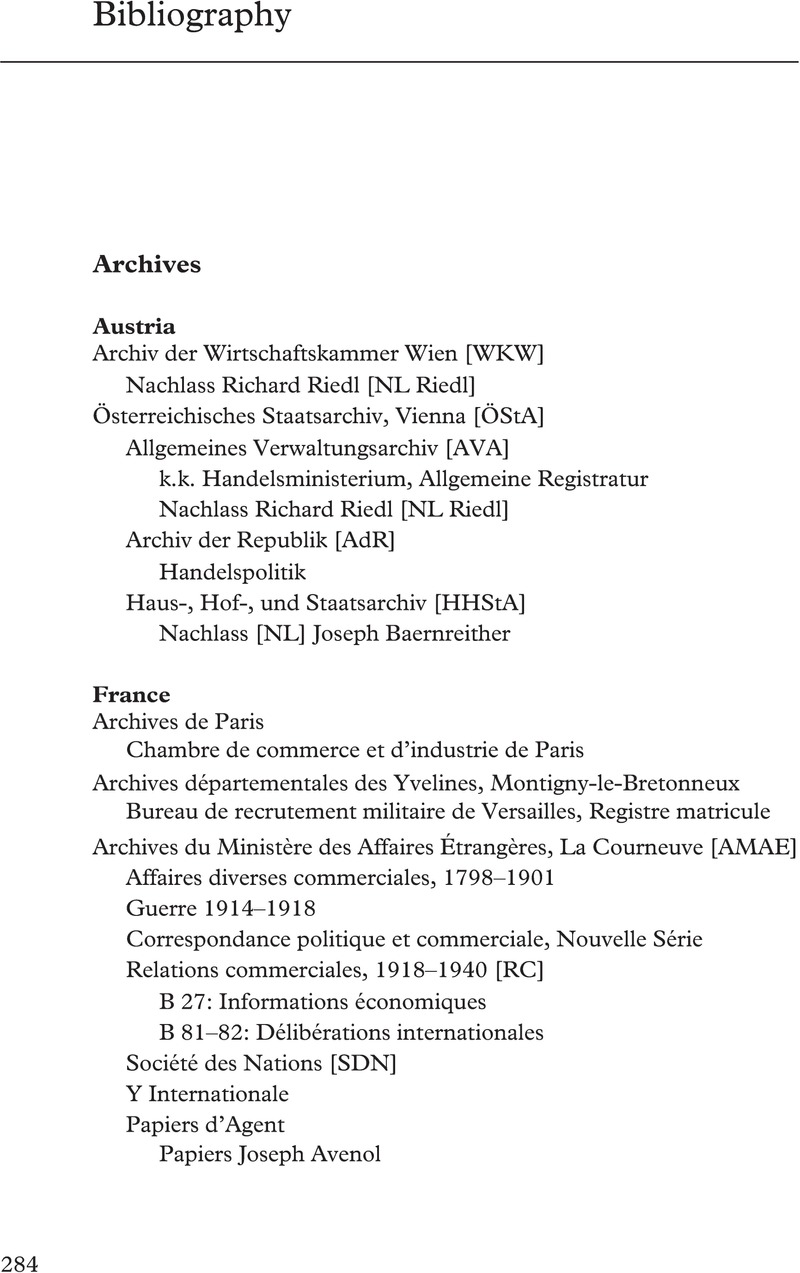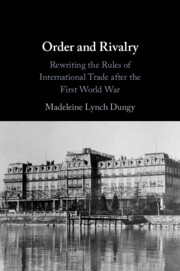Book contents
- Order and Rivalry
- Order and Rivalry
- Copyright page
- Dedication
- Contents
- Acknowledgements
- Organizational Abbreviations
- Introduction
- 1 Organizing Globalization
- 2 The World Economy at War
- 3 Planning the Peace
- 4 From Bilateral to Multilateral Trade Treaties
- 5 Studying the World Economy, from Kiel and from Geneva
- 6 European Unity and Security
- 7 The International Chamber of Commerce and the Politics of Business
- Conclusion
- Bibliography
- Index
- References
Bibliography
Published online by Cambridge University Press: 01 June 2023
- Order and Rivalry
- Order and Rivalry
- Copyright page
- Dedication
- Contents
- Acknowledgements
- Organizational Abbreviations
- Introduction
- 1 Organizing Globalization
- 2 The World Economy at War
- 3 Planning the Peace
- 4 From Bilateral to Multilateral Trade Treaties
- 5 Studying the World Economy, from Kiel and from Geneva
- 6 European Unity and Security
- 7 The International Chamber of Commerce and the Politics of Business
- Conclusion
- Bibliography
- Index
- References
Summary

- Type
- Chapter
- Information
- Order and RivalryRewriting the Rules of International Trade after the First World War, pp. 284 - 309Publisher: Cambridge University PressPrint publication year: 2023

